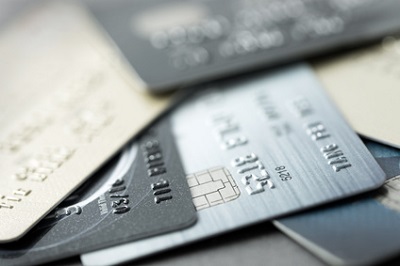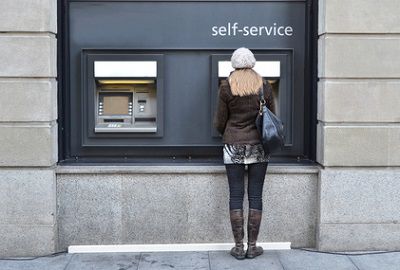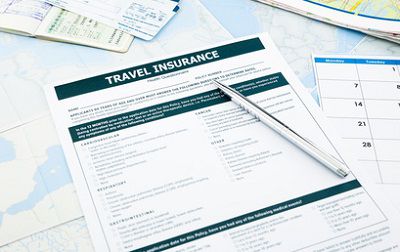Credit cards are handy things to have. Whether you use them for the benefits they provide or simply have one for an emergency the bottom line is sometimes you need one. This couldn’t be truer when it comes to car hire. It doesn’t matter how you pay for your hire car – you need a credit card when you collect it.
The reason behind this is it enables the supplier to authorise a security deposit to protect themselves whilst you have their vehicle. It provides protection for parking or speeding fines, un-insured parts of the vehicle, fuel charges if applicable, and in the unlikely event that a claim is made when the insurance has been invalidated.
OK, in some instances suppliers may make exceptions if you don’t have a credit card. This usually involves you buying their insurance policy which is ridiculous if you already have cover.
 Photo by: Kenishirotie/Fotolia
Photo by: Kenishirotie/Fotolia
But what about after you’ve collected your car? What other benefits are to be had when using your credit card abroad?
Safer than cash
If you take all your holiday money in cash you should consider the security aspects. How much will you be carrying on you? Will you leave some in a safe? What if you’re robbed or it’s stolen? A credit card offers protection against all these scenarios and as such is worth having anyway.
Protection
You are protected by Section 75 of the Consumer Credit Act. This guarantees protection for purchases above £100 and below £30,000. So, in the event the company you bought (or hired) from goes bust or provides a faulty item, you can get a refund through your credit card.
This protection is particularly handy when it comes to holidays. For example, if you paid for your holiday on a credit card and your airline goes under whilst you’re abroad, you should get your money back through the credit card provider.
Purchase protection
Many credit cards also come with purchase protection, which means when you buy something and it is stolen or lost* the credit card company will refund you.
For example, if you buy a new TV on your credit card and the TV is stolen, your credit card company should reimburse you. Be sure to check any limitations as some providers exclude electronic items.
*Usually within 90 days. Always check time restraints.
American Express Platinum
If you have an AmEx Platinum card, double check your T&C’s. You may be eligible for car rental insurance which covers theft, damage and liability for up to £50,000.
Credit Card Charges Abroad
When you use a standard credit card abroad you could face up to 3 separate charges.
- Foreign exchange fee – Like most debit cards, if you use your credit card abroad, you could be hit with a foreign exchange fee of around 2.75%.
- Cash withdrawal fees – Like most debit cards, if you use your credit card to withdraw cash you may have to pay 2%-3% of the amount you withdraw.
- Interest charges – If you don’t pay off your credit card balance in full, you’ll be charged interest on it unless it offers a 0% window. Remember this doesn’t apply to cash withdrawals.
Credit Card Cash Withdrawals
As mentioned above, withdrawing cash from an ATM via credit card was traditionally quite expensive. There would be an interest charge and a withdrawal fee was added as well.
 Photo by: HappyAlex/Fotolia
Photo by: HappyAlex/Fotolia
These days however, many credit cards don’t charge for cash withdrawals abroad. You may have a slightly higher interest rate to contend with but if you withdraw a large amount, it can be a viable option. Make sure you check your sums though!
Prepaid Credit Card
A prepaid credit card can provide the best option if you plan to use ATM’s often. It’s a blank card that you top up with funds at a set exchange rate, a pre-paid card can save a fortune in additional fees. The exchange rates are usually very favourable and this is certainly an option worth exploring.
Lost Cards & Other Difficulties
Barclaycard (and other providers) will provide access to an English-speaking lawyer or doctor or an interpreter should you experience any major problems when abroad.
If you lose your card, they can also provide access to £1,000 (provided you have the funds) or a temporary credit card.
Double check your provider’s support options before you travel and ensure you have their contact details.
Credit Cards with Travel Insurance
Many credit cards offer travel insurance as part of their benefits package. Winter sports is not usually included so check your T&C’s if you’re hitting the slopes.
 Photo by: vinnstock/Fotolia
Photo by: vinnstock/Fotolia
Make sure you calculate the separate cost of the cover, is it cheaper to buy your travel insurance separately and have a basic credit card? Some companies charge an annual fee or high interest rates, but these may be offset by benefits such as travel insurance or phone insurance.
The Best Credit Cards to Use Abroad
If you can, always have a MasterCard and Visa. If you can only have one, MasterCard offers the better all-round option with regards to exchange rates and general acceptance. Keep an eye out for any deals that include free balance transfers or cashback credit cards etc.
At the moment, Halifax and MBNA are worth considering when looking for a travel credit card.
Top Tips when Using Credit Cards Abroad
Before you go:
- Check your credit card company’s fees and charges for overseas purchases and cash withdrawals.
- Check the best and worst exchange rates charged for local currency so you know if you’re being ripped off.
- Tell your provider you’re going abroad so they don’t cancel your card.
- Ensure you have your credit card company’s emergency number (usually on the back of the card).
- Look for special “travel credit cards”. These offer better T&C’s and rates for travellers. A travel credit card might not be the best choice at home but could save you a fortune abroad.
- Check the credit card exchange rates. MasterCard usually offer better rates than Visa.
When you’re abroad:
- You may be given the option of paying in Sterling (or your local currency) or the local currency – this is known as Dynamic Currency Conversion. If you pay in Sterling, make sure the exchange rate is competitive. If in doubt, pay in the local currency as it will almost always be cheaper.
- Use sun screen!
Get in Touch
If you have any other tips regarding travelling abroad, such as countries where cash is king or locations which won’t accept certain cards, let us know below. Before you head off, make sure you read our other top travel tips and sign up to our newsletter below. Also, don’t forget to follow us on Twitter and Facebook for all the latest news and updates.
Subscribe to our newsletter
Want our blogs emailed direct to you? Sign up below to get updates featuring our blogs and car hire top tips. Receive the best deals on car hire straight to your inbox.






I am considering renting a car in Almeria and on your web site you have Europcar’s fuel policy that states that a refund will be given subject ject to the car being returned with a full tank. Is that a FULL refund?
Regards
bill
Dear Bill,
In short, yes. As long as you return the vehicle completely full of fuel, Europcar will refund this. If you are concerned about this, it is good practice to take a photo of the fuel gauge when you return the car and keep your fuel receipts, but it is unlikely that you will experience any issues. We are also on hand to help, both during and after your rental, so please contact us via phone or email if you have any further questions.
Kind regards,
Gemma
Economy Car Hire